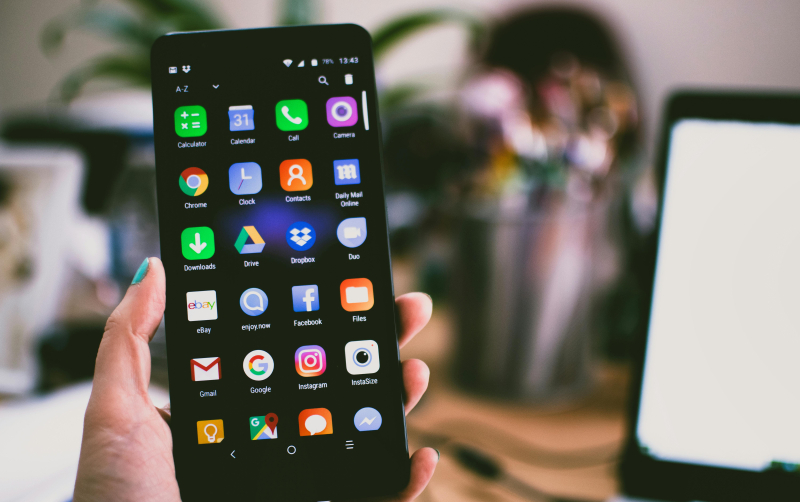How AI Technology Implementation Improves Mobile App Development

Personalization Through AI
AI allows mobile apps to deliver highly personalized experiences by analyzing user data and behavior.
- AI-Driven Recommendations: Apps like Netflix and Spotify use AI algorithms to suggest content tailored to user preferences.
- Real-Time Adaptation: E-commerce apps personalize product recommendations, increasing user satisfaction and sales.
- Examples: Social media platforms leverage AI to curate feeds that match individual interests.
Personalization enhances user engagement and keeps customers coming back for more.
Enhanced App Performance with AI
AI plays a crucial role in optimizing app performance by predicting potential issues and automating fixes.
- Predictive Analytics: AI tools analyze usage patterns to identify areas that need improvement.
- Automated Testing: Tools like Appium and AI-powered debugging reduce errors and improve stability.
- Resource Management: AI dynamically adjusts app resource usage, ensuring smooth performance on different devices.
These enhancements lead to more reliable apps and better user experiences.
Smarter Voice and Chat Interfaces
Natural Language Processing (NLP) has enabled mobile apps to incorporate conversational interfaces, revolutionizing user interactions.
- Chatbots: Apps integrate AI-powered chatbots to handle customer queries 24/7.
- Voice Assistants: Voice-controlled apps like Alexa, Siri, and Google Assistant simplify tasks for users.
- Contextual Understanding: AI enables apps to understand user intent, making conversations more human-like.
These interfaces improve accessibility and convenience, making apps more user-friendly.
AI-Powered Image and Video Recognition
Computer vision, powered by AI, has opened new possibilities in app functionality.
- Face Detection: Used in social media apps for filters and effects.
- Object Recognition: E-commerce apps enable users to search for products using images.
- Healthcare Applications: AI-powered apps analyze medical images for early diagnosis.
These features elevate app utility and enhance user engagement.
Advanced Security Measures
AI strengthens mobile app security, protecting sensitive user data from cyber threats.
- Fraud Detection: AI identifies unusual activity patterns to prevent fraud.
- Biometric Authentication: Facial and fingerprint recognition powered by AI offers secure and seamless login options.
- Data Encryption: AI-based algorithms enhance data encryption to safeguard information.
By mitigating risks, AI builds trust and confidence among app users.
Predictive Analytics and Insights
Predictive analytics, driven by AI, helps businesses anticipate user needs and improve their apps accordingly.
- User Behavior Predictions: AI identifies trends, allowing businesses to enhance their marketing strategies.
- Customer Retention: Apps use AI to detect potential drop-offs and re-engage users with personalized offers.
- Examples: Fitness apps predict user goals and suggest tailored workout plans.
This ensures apps remain relevant and valuable to users.
Streamlining Development with AI Tools
AI-powered tools are transforming how apps are built, reducing development time and effort.
- AI-Assisted Coding: Tools like GitHub Copilot and TabNine suggest code snippets, improving developer productivity.
- Automated Debugging: AI identifies and fixes errors faster than manual testing.
- Efficient Prototyping: AI accelerates the design process with intelligent wireframing tools.
These innovations enable developers to focus on creativity and strategy.
Improved User Retention with AI
AI helps apps retain users by delivering meaningful interactions.
- Personalized Notifications: Apps send tailored alerts based on user preferences.
- Interface Optimization: AI identifies and adapts to user behavior for better navigation.
- Dynamic Adjustments: Apps evolve in real-time to suit changing user needs.
This personalization ensures users stay engaged over the long term.
Integration with Augmented Reality (AR)
AI is enhancing AR experiences, making apps more interactive and immersive.
- Smarter AR Features: Apps combine AI and AR for real-world object recognition and manipulation.
- Gaming: AI-powered AR creates realistic virtual environments.
- Retail Applications: Virtual try-ons for clothes or furniture improve the shopping experience.
This fusion of AI and AR offers unique value to users.
Efficient App Testing and Quality Assurance
AI revolutionizes app testing by automating repetitive tasks and ensuring high-quality outputs.
- Error Detection: AI tools identify bugs faster and more accurately than manual methods.
- Testing Scenarios: Simulate various use cases to ensure app stability.
- Reduced Time-to-Market: Faster testing cycles accelerate app launches.
This ensures apps are reliable and user-ready.
AI for Localization and Accessibility
AI bridges cultural and physical barriers by enabling real-time localization and accessibility.
- Language Translation: AI-powered apps offer multi-language support for global audiences.
- Accessibility Features: AI improves navigation for differently-abled users with voice commands and visual aids.
This expands an app’s reach while promoting inclusivity.
Monetization and Revenue Optimization
AI helps businesses optimize app monetization strategies for maximum ROI.
- Ad Targeting: Machine learning algorithms identify user preferences for better ad placements.
- In-App Purchases: Predictive AI analyzes user behavior to suggest relevant products or upgrades.
- Dynamic Pricing: AI adjusts pricing strategies based on user engagement and market trends.
This boosts revenue while maintaining user satisfaction.
Challenges in Implementing AI in App Development
While AI offers significant benefits, challenges remain:
- High Costs: Developing AI-powered apps requires substantial investment.
- Ethical Concerns: Data handling and bias in algorithms can lead to privacy issues.
- Complexity: Implementing AI requires specialized skills and resources.
Addressing these challenges is key to successful AI integration.
Conclusion
AI is revolutionizing mobile app development by enhancing personalization, improving performance, and streamlining workflows. From smarter chat interfaces to predictive analytics, the potential of AI is limitless. By embracing these technologies, businesses can create innovative, user-friendly apps that drive engagement and growth. With AI continuing to evolve, the future of mobile app development is more exciting than ever.
FAQs
- How does AI enhance mobile app personalization?
AI analyzes user data to deliver tailored experiences, such as personalized recommendations and customized interfaces.
- Which industries benefit the most from AI-driven mobile apps?
Industries like e-commerce, healthcare, finance, and entertainment see significant benefits from AI-powered apps.
- What AI tools are commonly used in app development?
Tools like GitHub Copilot, TensorFlow, and IBM Watson are popular for coding, analytics, and automation.
- How does AI improve app security?
AI detects threats in real-time, enables biometric authentication, and enhances data encryption to protect sensitive information.
- Are there any downsides to implementing AI in mobile app development?
High development costs, ethical concerns, and technical complexity can pose challenges during AI implementation.






